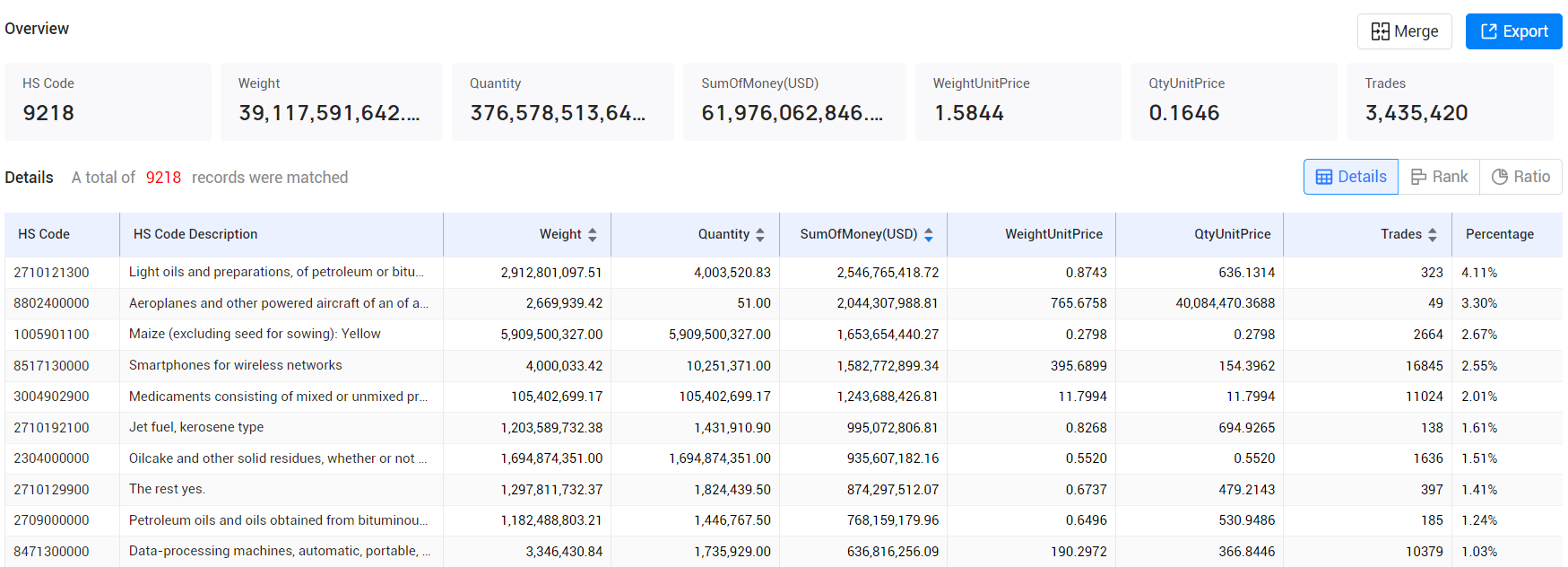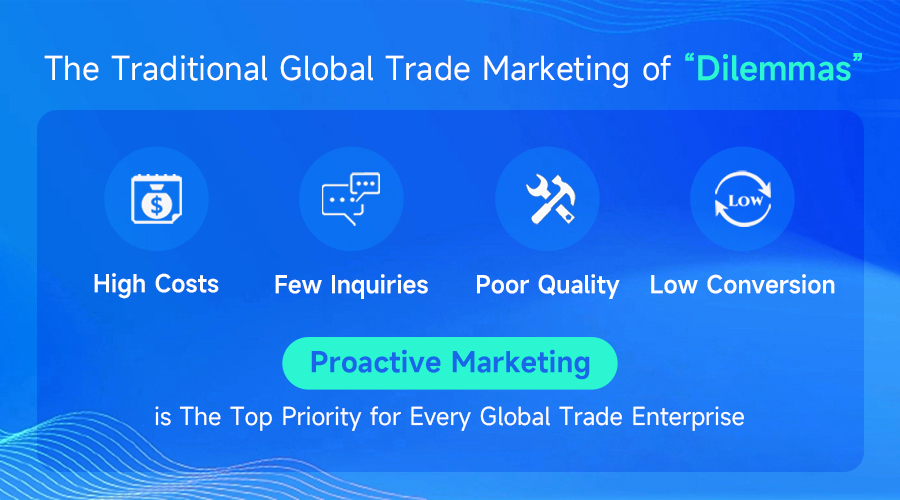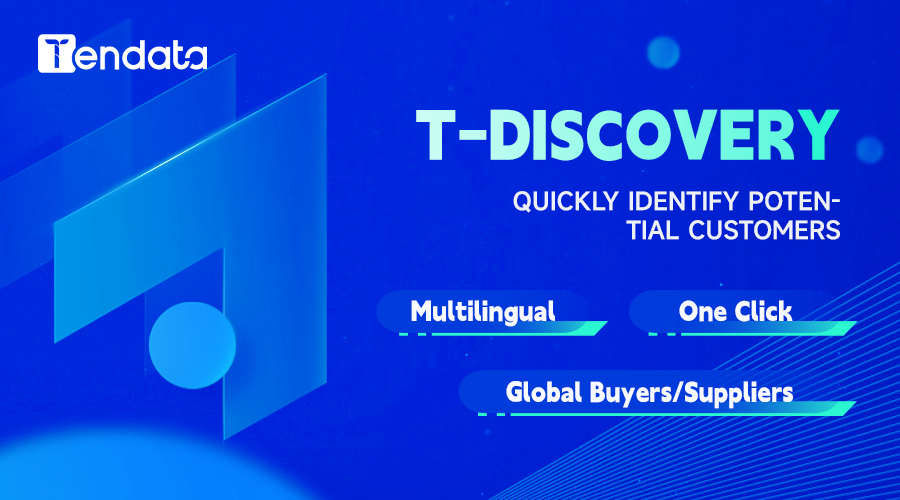 Import News
Import News
 16-05-2024
16-05-2024
Colombian import data indicates that in 2023, the total value of Colombia's imports was $62.8 billion. In 2022, Colombia's import purchases amounted to $77.4 billion, showing a year-on-year decline of -18.9%.
Colombia's Largest International Suppliers
The latest Colombian import data shows that 74.07% of Colombia's imported products are supplied by exporters from the following countries:
1. United States (25.55%, $15.83 Billion)
2. China (21.65%, $13.42 Billion)
3. Brazil (6.29%, $3.9 Billion)
4. Mexico (4.98%, $3.09 Billion)
5. Germany (3.74%, $2.32 Billion)
6. France (3.33%, $2.07 Billion)
7. Argentina (2.27%, $1.41 Billion)
8. India (2.26%, $1.4 Billion)
9. Japan (2.19%, $1.36 Billion)
10. Spain (1.81%, $1.12 Billion)

From a continental perspective, Colombian import data reveals that nearly one-third (32.9%) of Colombia's total imports are purchased from North American trading partners. Asian countries account for 32.6% of Colombia's import purchases. Additionally, 18.6% of goods come from Europe, while 14.9% are from Latin American exporters. A smaller proportion of Colombia's imported products are supplied by Africa (0.8%) and Oceania (0.1%).
Top 10 Imported Products in Colombia
According to Colombian import data based on 2-digit HTS codes, the Top 10 imported products account for 62.6% of Colombia’s total import purchases from other countries:
1. Mineral fuels, including oil: $6.5 billion (10.3% of total imports)
2. Machinery, including computers: $6.4 billion (10.3%)
3. Electrical machinery and equipment: $6 billion (9.6%)
4. Vehicles: $4.8 billion (7.6%)
5. Pharmaceuticals: $3.7 billion (5.8%)
6. Cereals: $2.7 billion (4.3%)
7. Plastics and plastic articles: $2.7 billion (4.2%)
8. Aircraft, spacecraft: $2.4 billion (3.8%)
9. Organic chemicals: $2.3 billion (3.6%)
10. Optical, technical, and medical apparatus: $1.9 billion (3%)
The latest Colombian import data shows that pharmaceuticals are the only category among the Top 10 imports to have grown from 2022 to 2023, increasing by 4.2%. The most significant year-on-year declines were seen in Colombia's imports of plastics and plastic articles (down -31.6% from 2022), organic chemicals (down -29.9%), vehicles (down -25.4%), and electrical machinery and equipment (down -23.8%).
Based on the 4-digit HTS codes, Colombia’s Top 10 imported products include:
1. Refined petroleum (8.2%)
2. Cars (4.4%)
3. Telephone equipment, including smartphones (3.6%)
4. Packaged medicines (3.6%)
5. Aircraft or spacecraft (3.5%)
6. Corn (3%)
7. Blood components, including antisera (1.8%)
8. Computers, including optical readers (1.8%)
9. Solid residues, including soybean oilcake (1.5%)
10. Crude oil (1.2%)
According to more detailed HS codes, the Top 10 imported products in Colombia are:
1.HS Code:2710121300(4.11%, $2.55 Billion):Light oils and preparations, of petroleum or bituminous minerals which >= 90% by volume "incl. losses" distil at 210掳C "ASTM D 86 method" (excl. containing biodiesel) + detailed label not available +
2.HS Code:8802400000(3.3%, $2.04 Billion):Aeroplanes and other powered aircraft of an of an unladen weight > 15.000 kg (excl. helicopters, dirigibles and unmanned of heading 8806)
3.HS Code:1005901100(2.67%, $1.65 Billion):Maize (excluding seed for sowing): Yellow
4.HS Code:8517130000(2.55%, $1.58 Billion):Smartphones for wireless networks
5.HS Code:3004902900(2.01%, $1.24 Billion):Medicaments consisting of mixed or unmixed products for therapeutic or prophylactic purposes, put up in measured doses "incl. those in the form of transdermal administration" or in forms or packings for retail sale (excluding medicaments containing antibi
6.HS Code:2710192100(1.61%, $1 Billion):Jet fuel, kerosene type
7.HS Code:2304000000(1.51%, $0.94 Billion):Oilcake and other solid residues, whether or not ground or in the form of pellets, resulting from the extraction of soya-bean oil (detailed label not available)
8.HS Code:2710129900(1.41%, $0.87 Billion):The rest yes.
9.HS Code:2709000000(1.24%, $0.77 Billion):Petroleum oils and oils obtained from bituminous minerals, crude
10.HS Code:8471300000(1.03%, $0.64 Billion):Data-processing machines, automatic, portable, weighing <= 10 kg, consisting of at least a central processing unit, a keyboard and a display (excl. peripheral units) + detailed label not available +

What can Tendata customs data help enterprises with?
1. Market Analysis
- Market Trends Analysis: Tendata's customs data helps businesses analyze market trends, understand the import and export volumes and growth trends of specific products or industries, and monitor changes in various country markets. Based on Tendata's market analysis, businesses can more accurately select target markets, including considering markets with large import and export trade volumes, rapidly growing demand, and understanding information about potential trading and cooperation partners.
- Product Analysis: By gaining insight into the performance of different products in international markets, businesses can optimize product positioning. Tendata's customs data also provides information on competitors' import and export activities, helping to develop more competitive strategies.
- Competitor Analysis: Using Tendata, businesses can analyze competitors, staying updated on their trade dynamics, import and export prices, trade volumes, etc., enabling rapid adjustments to market strategies.
>> Learn More About Tendata <<

2. Customer Development
- Customer Profiles: Tendata's customs data provides access to customers' import and export records, helping businesses understand their purchasing behavior, including the types of products purchased, quantities, frequencies, etc. This assists in forming customer profiles, allowing businesses to better understand customer needs and preferences. By analyzing customers' trading partners, businesses can understand the supply chain networks in which customers operate, thus gaining insights into their business environment and potential cooperation opportunities.
- Customer Background Checks: Tendata's customs data includes customers' trade history and payment records, facilitating credit assessments. By understanding customers' payment credibility, businesses can prudently select partners, reducing transaction risks. Through customs data, businesses can check whether customers' trading activities comply with relevant regulations and compliance standards, ensuring that cooperation with customers is based on legal and regulatory compliance.
- Lead Generation: By analyzing Tendata's customs data, businesses can directly obtain customer contact information and proactively reach out to foreign trade customers via email, LinkedIn, phone, other social media platforms, etc., for direct marketing and lead generation!
>> Get a Free Demo Now <<

Category
Leave Message for Demo Request or Questions


 T-info
T-info T-discovery
T-discovery

 My
Tendata
My
Tendata Market Analysis
Market Analysis Customer
Development
Customer
Development Competitor
Monitoring
Competitor
Monitoring Customer Relationship
Customer Relationship





































































































































